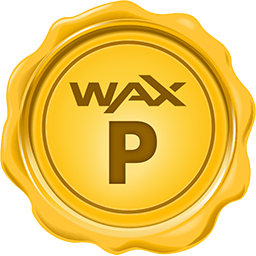







































How Blockchain Is Irrevocably Shaping Community Governance
 GTC
GTC
 FTR
FTR
 UNIT
UNIT
 GMIX
GMIX
Many people often associate blockchain technology solely with cryptocurrencies, but it has actually created a new digital paradigm that emphasizes user collaboration and community-driven decision-making. Furthermore, with the global blockchain market projected to reach a valuation of $1.43 trillion by 2030, it is clear that the advantages of decentralized systems are increasingly being recognized worldwide.
At the heart of this transformation lies the blockchain’s ability to create robust backing communities whose members are given the power to collectively shape an ecosystem’s future. Studies have shown that traditional corporate structures tend to suffer from low engagement rates, with only about 25% of employees reporting feeling actively involved in their organization’s decision-making processes.
In contrast, decentralized systems have demonstrated significantly higher levels of engagement, with approximately 45% of all users reporting a greater sense of involvement and contribution. The effects of this shift appear to be quite profound, with over 60% of members from various blockchain-centric platforms actively participating in governance, compared to a mere 15% within conventional organizations.
Furthermore, blockchain-driven communities are proving to be hotbeds of innovation, with initiatives such as Gitcoin attracting talent from around the world, which has led to the development of impactful decentralized applications (dApps) and an expansion of the ecosystem’s capabilities.
From a numerical standpoint, the economic implications of such collaborative efforts are staggering, with PwC projecting that blockchain technology could contribute $1.76 trillion to global GDP by 2030.
Community Governance Is the Future
As the blockchain continues to evolve, it is becoming increasingly clear that decentralized platforms will be the future of governance and collaboration. Unlike traditional institutions, where decision-making power is concentrated in the hands of a few, the decentralization of platforms and their communities can distribute power equitably among pertinent stakeholders.
One project exemplifying this ethos is Unit Network. Through its unique token economy, it enables individuals, businesses, and communities to launch and manage their own digital assets, creating a truly decentralized marketplace. By prioritizing accessibility and financial inclusion, the project is looking to bridge the gap between the traditional finance (trad-fi) arena and blockchain tech.
One of the key pillars of Unit Network’s success has been its incentive-driven engagement model that ensures users are rewarded for their contributions — be it through governance decisions, content creation, or community discussions.
Moreover, Unit Network’s tokenized marketplace allows for seamless value exchange amongst participants. By leveraging the power of a decentralized ledger, the platform can facilitate peer-to-peer interactions, reducing costs and enhancing efficiency.
Beyond this, Unit Network also prioritizes financial inclusion and education. It does so by providing tools and resources to individuals who have been underserved by the trad-fi market, thus helping bridge the gap between different economic groups.
Its commitment to decentralized crowdfunding allows businesses to raise capital efficiently, empowering entrepreneurs and small businesses to realize their visions without the constraints of traditional funding models.
Lastly, Unit Network’s ability to tokenize ownership takes transparency and accountability to the next level, ensuring that community members remain actively involved in the platform’s growth and evolution.
Final Thoughts
Looking ahead, the blockchain seems poised to drive significant advancements across diverse sectors, be it finance governance, creative industries, and even education. With decentralized ecosystems promoting transparency, efficiency, and shared ownership, many of today’s traditional barriers to financial and social inclusion are gradually being dismantled.
Unit Network, with its commitment to decentralization and empowerment, seems to be playing a crucial role in this regard, proving that community-driven innovation can redefine long-standing economic edifices and drive sustainable progress.
Therefore, as more individuals and businesses continue to recognize the potential of decentralization, the vision of a truly collaborative and equitable digital economy is becoming a tangible reality. Interesting times ahead, to say the least!

